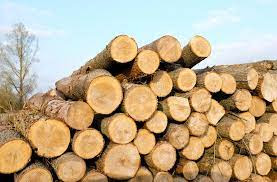Momodou Ndow, expounds his views on the timber Casamance crisis
The Casamance forest arear covers a total of 30,000 hectares and is known for its rare tree species.
The loss of 10 hectares accounts for 33 per cent Isn’t that frightening! This includes roosewood, which is particularly much in demand in China. The rapid growth of the wood industry in China has created tremendous demand.
China is currently the largest manufacturer of wooden furniture worldwide and the second largest manufacturer of paper products after the United States. Moreover, the construction and real estate industries in China, two of the largest consumers of wood products, have seen significant growth over the past five years.
It is no secret that The Mouvement des Forces Democratique de la Casamance, (MFDC) a separatist rebel group that has been fighting for the independence since 1982, sustains itself through illegal timber trafficking.
Logging is banned in The Gambia, and there is hardly any forest left.
Nevertheless, it is the second largest wood exporter from West Africa to China, after Nigeria. From 2010 to 2015, Gambia’s wood exports to China were valued at $238.5 million. This is a staggering volume, considering that logging is illegal in The Gambia has practically no more forests. Can you imagine today's value of exports?
Businessmen based in The Gambia are reported to be heavily inolvled in transporting timber from Casamance to China.
Yahya Jammeh was chief among them. For many years, Jammeh was a full participant in the decimination of the Casamance forest. The timber was traded through his shell company, Kanilai Group International.
Indeed, Jammeh was in cahoots with the MFDC rebels in the deforestation of Casamance. That is partly why he has always been belligerent towards Senegal.
In this context, it was only a matter of time for the fihting between the Senegalese forces and the MFDC rebels to overflow into The Gambia. We are in the middle of the illegal timber and trafficking that supports the rebels.
The Gambian government issues re-export permits for timber, and the timber comes from Casamance to be shipped from Banjul port. By issuing permits to re-export timber, the government allows all actors to operate with impunity.
The Gambia is a party to the illegal timber trade that supports the rebellion in Senegal, period! As a result, the Barrow government is paralyzed and unable to say much about the recent incident in Foni.
PUBLISHERS NOTE: VIEWS EXPRESSED HEREIN ARE THOSE OF THE AUTHOR AND DO NOT NECESSARILY REPRESENT THE VIEWS OF THE PUBLISHER.
WANT TO BE A CONTRIBUTING AUTHOR? EMAIL: opmail220@gmail.com

.jpeg)

Comments
Post a Comment